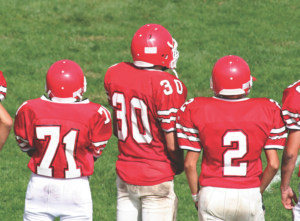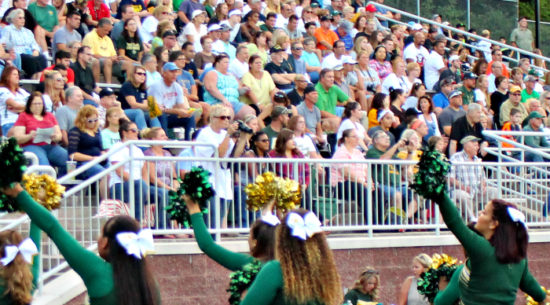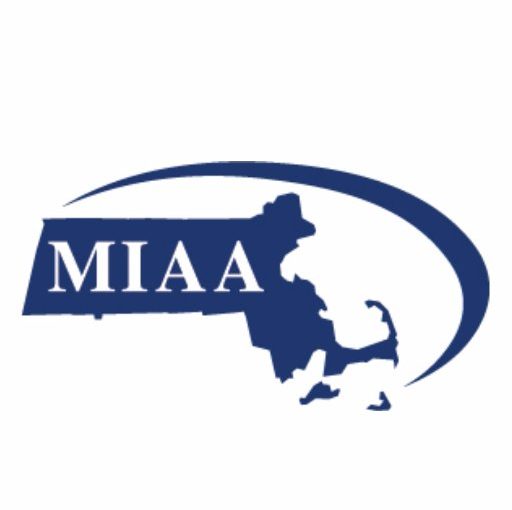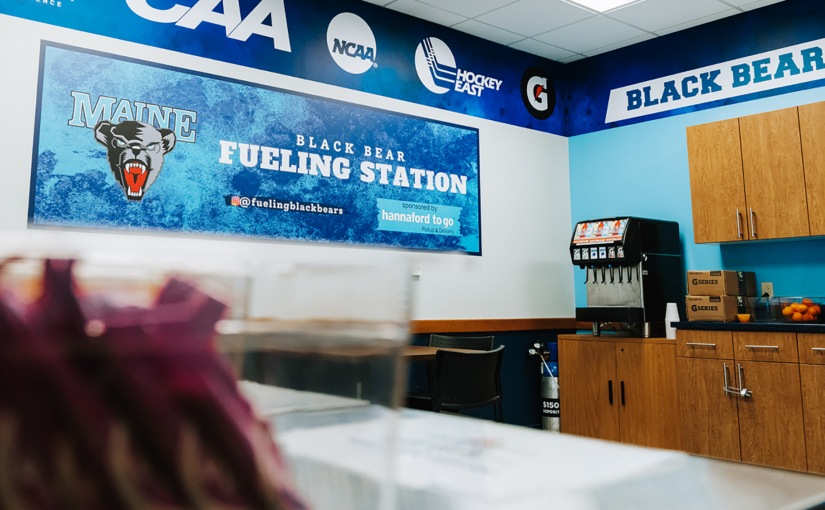A.D.ministration: Planning for the preseason parents meeting
The concept and use of preseason parents meetings has been used by athletic administrators and coaches for many years. You might already use a scheduled evening to educate, communicate and connect with the parents of your athletes. But are you using these meetings to the best of your advantage, or are there ways you can tweak and improve them?
 One proven approach is for the athletic director to host a general meeting in the auditorium before breaking into individual sessions led by the coaches of each sport. This means that you need to have a well-organized, concise presentation. With limited time, you must prioritize what you want and need to say. It’s important to do all of this in a way that you keep the attention of your audience, which might include a visual presentation.
One proven approach is for the athletic director to host a general meeting in the auditorium before breaking into individual sessions led by the coaches of each sport. This means that you need to have a well-organized, concise presentation. With limited time, you must prioritize what you want and need to say. It’s important to do all of this in a way that you keep the attention of your audience, which might include a visual presentation.
Meeting preparation
All high school athletic programs are unique, but there are some common, basic topics that should be covered in a preseason parent meeting. You should discuss:- Legislative and state athletic policies and procedures that affect student-athletes.
- School district and state eligibility standards for athletes.
- Procedures to report injuries to your athletic trainer, including concussion protocols.
- Sportsmanship expectations, not only for student-athletes but for fans and parents.
- Expectations that parents go through the established chain of command with concerns. This means contacting the coach first, before going to the athletic director and principal.
- Any new developments with respect to your facilities, league alignment or budget concerns.
- The purpose, aspects and value of education-based athletics. Many parents don’t know much about this philosophical concept, and their understanding and appreciation is vital to the smooth, successful operation of your program.
As parents enter or leave your meeting, it’s wise to have pertinent handouts available. They include additional information about any of the topics that were covered, serving as a constant reminder. Try being firm and strongly encourage that everyone pick up each of your handouts. This is another way of getting your message across, and these documents can be used for reference.
After you cover your topics and parents take copies of the various documents, they have been informed about policies, procedures, expectations and concepts. This all becomes the basis for accountability.
The next step is for your parents to meet with the individual sport coaches. For this portion of the evening to be successful, athletic directors should provide coaches with guidelines for what needs to be covered in their sessions. This time, and the overall message, is so important that you don’t want to leave this to chance and allow inaccurate information to be shared or important points being missed entirely.
 It’s critical that coaches spend time on the topics that usually cause the greatest number of problems within their program. Have them explain the procedures, reasons and concepts for their approaches at the very beginning in a clear, concise manner. You probably want your coaches to cover how the squad will be chosen, how they determine the starters and playing time, the criteria for earning a letter, and review the team rules. These four topics represent 90 percent of the problems that usually unfold, so it makes sense to spend considerable time covering them.
It’s critical that coaches spend time on the topics that usually cause the greatest number of problems within their program. Have them explain the procedures, reasons and concepts for their approaches at the very beginning in a clear, concise manner. You probably want your coaches to cover how the squad will be chosen, how they determine the starters and playing time, the criteria for earning a letter, and review the team rules. These four topics represent 90 percent of the problems that usually unfold, so it makes sense to spend considerable time covering them.
Your coaches also should address many of the following topics and anything specific to their setting that requires clarification:
- The academic requirements to be eligible for participation.
- The coaching philosophy and style of play that will be used.
- Details about practice sessions, what they cover and why spectators are not allowed.
- The expectation that athletes regularly attend practices and classes.
- How the athletes are responsible for the uniforms and equipment issued to them.
- Proper communication methods when parents have concerns or questions.
Other considerations
While this is not meant to be an all-inclusive list, it does represent a good starting point.
Since some parents have several children who already participated in your program, you can’t and shouldn’t repeat the same presentation each year. Also, some athletes may play more than one sport, and this means that parents could be involved in more than one meeting during the school year. In both cases, how do you ensure their attendance after already listening to your presentation once before?
If you’re lucky to be in a school that requires attendance by parents before their child tries out for a team, you’re set. But for those where attendance is optional, you may have to consider changing the location and presentation format to keep things new and interesting. This can be done by using different presenters, such as your athletic trainer, an athletic director at a neighboring school or a former athlete. The message is the same, but parents get to hear it from a fresh voice, which can make all the difference.
Along with your handouts of policies, information concerning injuries and treatment, and other pertinent documents, you should include copies of your “parent contract” requiring their signatures. This document spells out your standards with regard to sportsmanship and all department procedures that parents need to follow. Some may balk or disagree with the term “contract,” so consider using alternative words such as agreement, guidelines or expectations. This document indicates that they have read and agree to follow your expectations, and it becomes a major tool for accountability if a problem arises.
A preseason meeting is a well-established, proactive effort to educate and inform the parents of your athletes. To meet your goals, it takes a great deal of thought, planning and effort. But successful execution means fewer headaches during the season.
A.D.ministration is a column written by David Hoch, offering strategies and tips for athletic administrators. Hoch, CMAA, has 16 years of experience as a high school athletic director and served for 12 years as the executive director of the Maryland State Coaches Association. In 2000, he was named Athletic Director of the Year by the Maryland State Athletic Directors Association.
One thought on “A.D.ministration: Planning for the preseason parents meeting”
Leave a Reply
You must be logged in to post a comment.






This is great advice when dealing with parents proactively and every high school and even middle school coach should most definitely have the meeting mandatory and provide resources. I suggest providing a copy to your athletic director also. Very good article.